Dementia is a condition that causes loss of memory and impacts problem-solving and thinking abilities, affecting mostly older adults. Dementia and Alzheimer’s disease, as it’s the most common type, alter a person’s life, causing them to experience confusion, wander, and get lost in a familiar neighborhood.
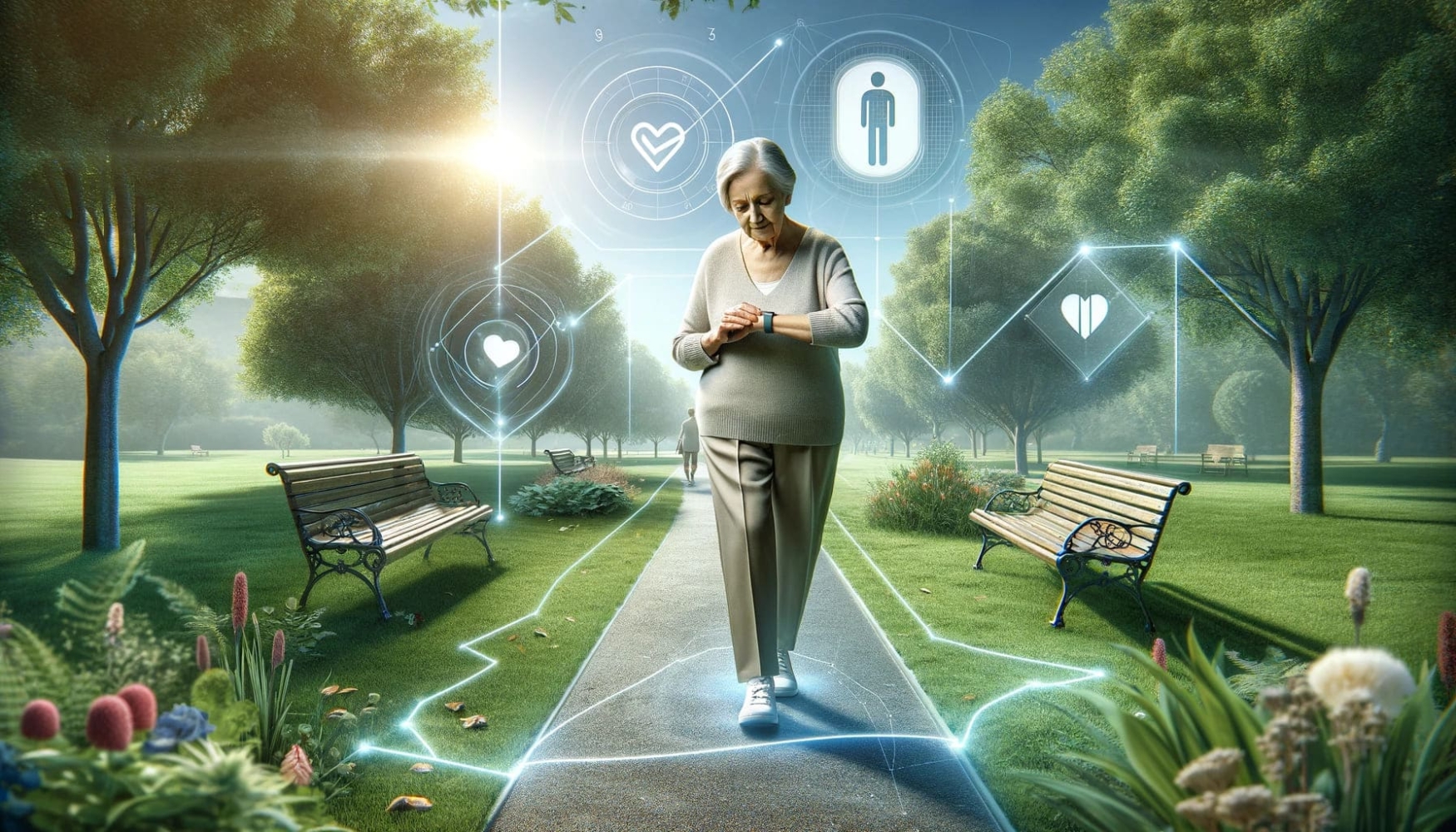
GPS trackers for dementia patients can help in the search for the elderly with dementia who are lost and can assist caregivers and family members in knowing when their loved one has wandered outside the home.
According to Doctor Ruth Bartlett of the University of Southampton, location devices for people with dementia can give them greater independence and freedom while reassuring their families and carers. This review looks at the best GPS trackers for dementia patients.
Top Pick Based on Our Research
🥇 AngelSense GPS Tracker Watch – Best GPS smartwatch. AngelSense is an excellent option for dementia patients thanks to its live location updates.
🥈 Apple Airtag – Best Budget GPS tracker. Apple Airtag requires a one-time fee, you can track a loved one if other Apple devices are nearby.
🥉 mSpy – Best Overall Phone Tracker. Older adults with dementia are susceptible to scammers. Stay ahead by using mSpy to know who they interact with on their phone.
How GPS Tracker For Elderly With Dementia Can Help
- Location Monitoring
GPS trackers can help keep tabs on the whereabouts of seniors with dementia, reducing the risk of wandering and getting lost. - Enhanced safety
Many GPS trackers have an SOS button for emergencies, such as a fall. - Independence and mobility of the elderly
GPS trackers support seniors with dementia in maintaining independence and mobility by allowing them to move within specific parameters without constant supervision. - GEOfence with alerts
Caregivers can set virtual boundaries or geofences, which trigger alerts when the senior crosses predefined limits, ensuring their safety and reducing the risk of wandering. - Location History
GPS devices often provide Google Maps location history, allowing identifying patterns in the senior’s movements and potentially adjust their care plan accordingly.
Types of GPS Tracking Devices For Seniors With Dementia
GPS tracking devices for seniors with dementia and Alzheimer’s disease are typically categorized based on their form factor (such as wearable watches or pendants), functionality (like geofencing or two-way communication), and the method of tracking (using GPS, Wi-Fi, or cellular networks).
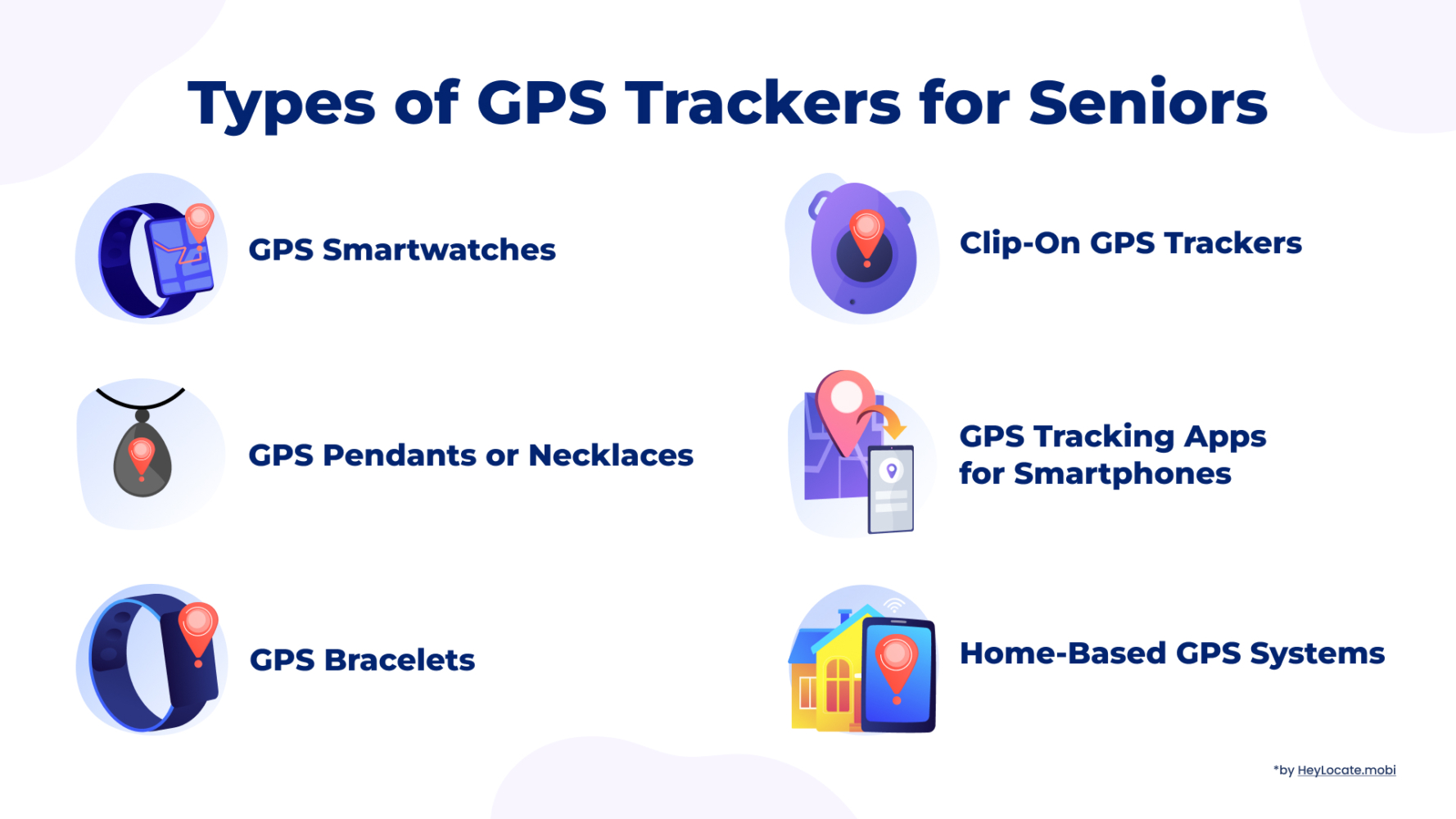
- Wearable GPS Trackers are compact devices that can be worn as smartwatches, wristbands, pendants, or clipped onto clothing. They provide real-time location information and are ideal for elderly individuals or people with dementia who may wander.
- GPS Shoes are designed to help track the whereabouts of seniors or individuals prone to wandering. These shoes have discreet GPS technology embedded within the soles to monitor movement.
- GPS Smartwatches connect to smartphones and offer GPS tracking features. They are popular for seniors since they allow the wearer to stay connected while providing location information.
- GPS Pendants or Necklaces come equipped with GPS tracking unit technology, making them discreet and stylish options for tracking the location of a loved one.
- GPS Clip-on Devices are small, portable, and easily attached to clothing, bags, or personal items. They’re suitable for keeping track of individuals who need extra monitoring, like seniors with dementia.
- GPS Tracking Apps for Smartphones turn a mobile device into a GPS tracker. They’re versatile and cost-effective, allowing you to monitor the location of older family members with dementia. They can help protect them from scammers since you monitor all the phone’s activities.
- GPS Locator Watches are designed primarily for seniors or those with cognitive impairments. They provide real-time location data and may include additional features like SOS buttons.
- GPS Tracking Bracelets are wearable GPS trackers that offer an inconspicuous way to keep tabs on a person’s location and are frequently used for children and seniors.
- GPS Keychain Trackers are compact, keychain-sized devices used for tracking personal belongings, such as keys or bags. While they’re not intended for tracking people, you can attach them to a person’s clothing.
- GPS Tracking Devices for Wheelchairs are specifically designed for wheelchair users. They are usually mounted on the wheelchair frame. GPS tracking devices for wheelchairs help caregivers keep track of the wheelchair’s location and prevent theft.
Comparison of GPS Tracking Devices For Elderly With Dementia
The table below may help you to choose a GPS tracker for the elderly with Alzheimer’s disease or dementia.
| Type | Best For | Pros | Cons | Price Range |
|---|---|---|---|---|
| Wearable GPS Trackers | Live location tracking | Offer features like geofencing They can use more than one tracking technology | May not be discreet Some require charging | $ – $$$ |
| GPS Shoes | Preventing wandering | Discreet Long battery life | Can be quite expensive Will require replacement every 2 – 3 years | $$$ – $$$$ |
| GPS smartwatches | Detailed location information | Can track health metrics Can function as a smartphone | May require charging every day Some need the paired phone nearby to work | $$ – $$$ |
| GPS pendants or necklaces | Safety on the go | Most are SOS-enabled Designed as jewelry for discretion | Fall detection often issues false alerts | $ – $$ |
| GPS Clip-On Devices | Attaching to belongings | Can mount on anything, including clothing Difficult to remove from the attached item | Some don’t have SOS buttons Offer few extra features | $$ – $$$ |
| GPS tracking apps for smartphones | catching scammers | Monitors all activities on a target phone Tracks keywords | Ideal only if senior uses a smartphone | $ – $$ |
| GPS tracking devices for wheelchairs | Preventing wheelchair theft | Highly accurate GPS readings Lightweight and easy to use | Some are not waterproof Require multiple tracking technologies for live location tracking | $$ – $$$ |
We took some resources from the top reviews of the best, and almost all of them were awful. So trust only verified sources of information or blogs of specialized services related to telecommunications. For example, like our HeyLocate blog.
Top GPS Trackers For Dementia Patients
In this section, we’ll look at the top options for keeping track of a person with dementia.
This article aims to provide a list of the most popular GPS trackers designed for dementia patients, without offering rankings. All the products mentioned in this list come with various distinctive features tailored to meet diverse customer needs.
AngelSense GPS Tracker Watch – Best Overall
AngelSense GPS Tracker Watch is one of the best GPS trackers for dementia. It was developed by Doron Somer and Nery-Ben-Azar in 2014 to protect kids and seniors from wandering and eloping. Its advanced GPS location tracking feature makes it an excellent device for finding the elderly with dementia and Alzheimer’s.
Best for seniors who tend to wander.
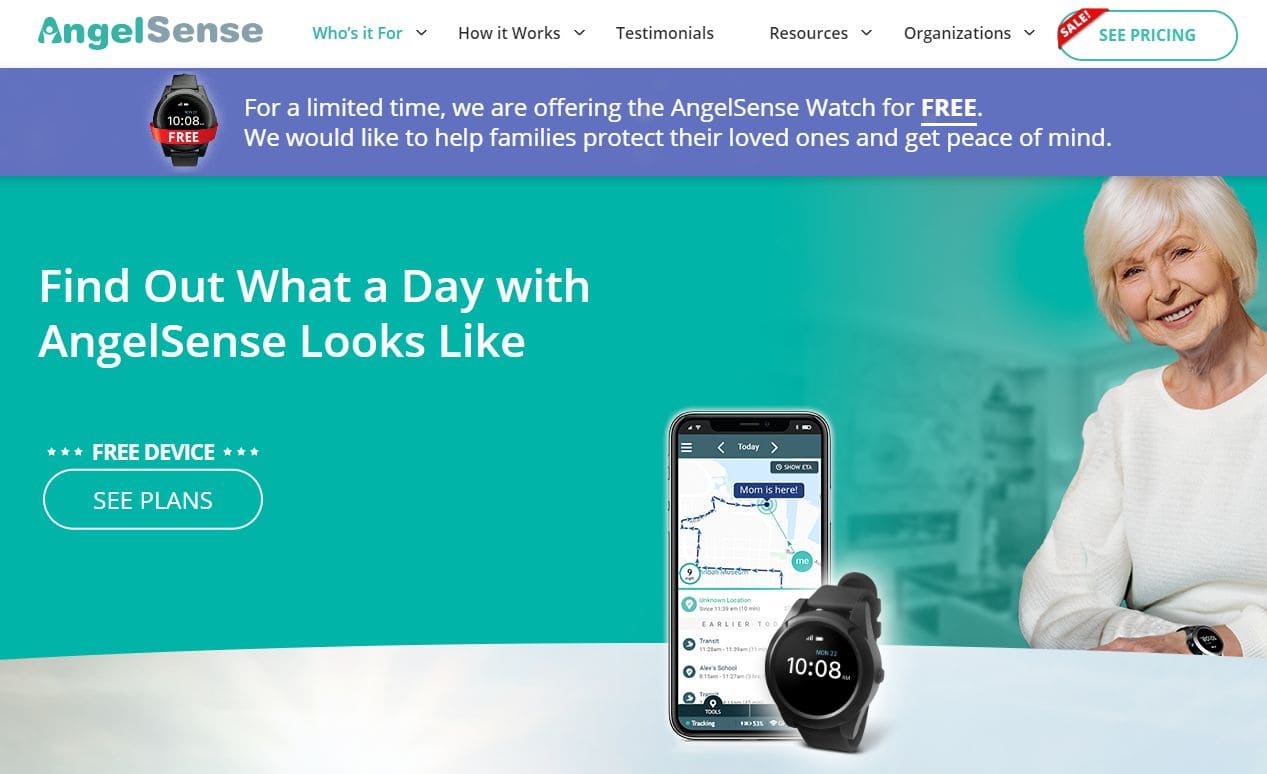
Price:
- $229 – GPS watch;
- $53/mo – month-to-month;
- $40/mo – one-year contract;
- $400 – yearly plan.
User Experience:
The AngelSense GPS tracker watch has a discreet wearing option for seniors with sensory sensitivities. It is comfortable for all-day wear, and its non-removable fastener ensures it cannot be taken off without the AngelSense key.
AngelSense GPS tracker gives your loved one’s precise location on the AngelSense app or web browser. You can also see the wearer’s live transit route, ETA, and speed. The one and two-way voice feature ensures you can check in with your loved one or speak with them.
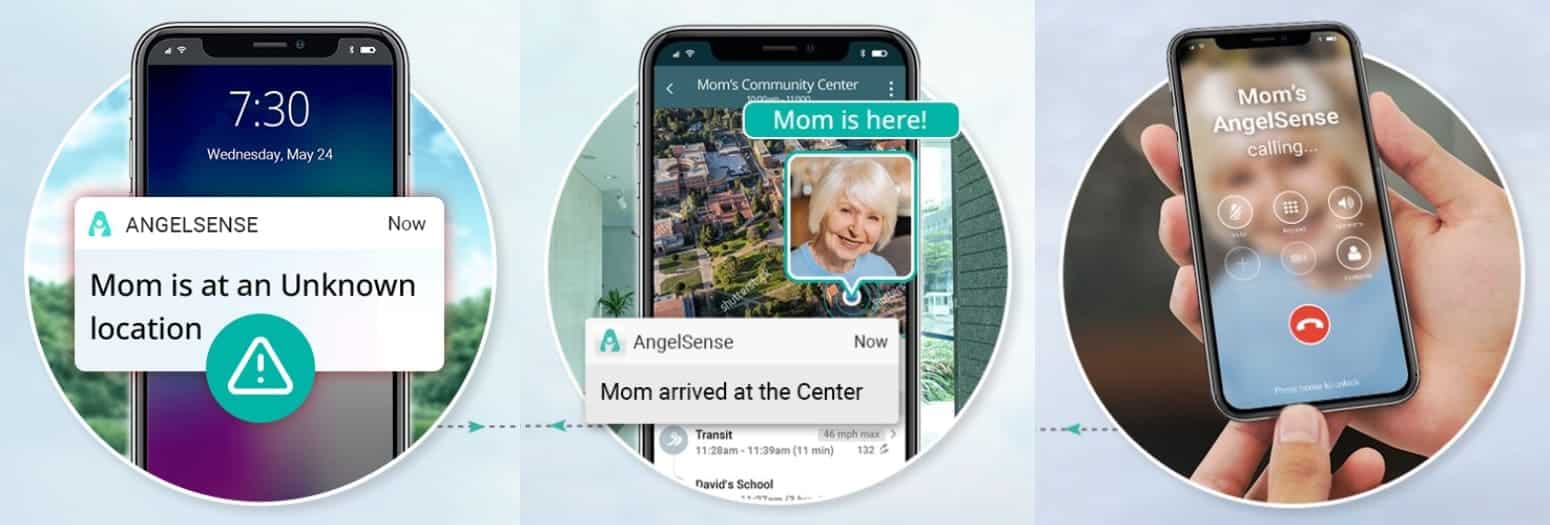
A user on Quora says they like that AngelSense has alerts that send an emergency notification when the wearable device leaves the assigned area.
AngelSense GPS watch could locate my loved one even if their phone’s battery died. I could customize safe zones, automatic geofences, and even track them in transit. Furthermore, AngelSense gave me a daily timeline and location history.
Its Runner mode gave me an updated location every ten seconds. It tracked the location accurately and in real-time, making it a must-have if you want a device that gives you complete control while keeping track of your loved one with dementia.
Pros:
- location history helps to create a daily routine;
- allows temporary location-sharing access in an emergency search;
- gives alerts when a senior goes into an unknown location;
- alerts you when a loved one is in transit.
Cons:
- the monthly subscription fee is a bit high;
- the return policy is only 30 days.
Apple Airtag – Best Cheap GPS Tracker for Dementia Patients
Apple Airtag is a useful tool for tracking dementia patients. You can wear it as a pendant or attach it to keys, providing a discreet way of locating a loved one if they ever wander due to dementia or Alzheimer’s disease.
Apple Airtag was designed to be attached to keys, wallets, and other items. Its live locating tracking makes it an incredible personal GPS tracker.
Best for dementia patients who forget their smartphone.
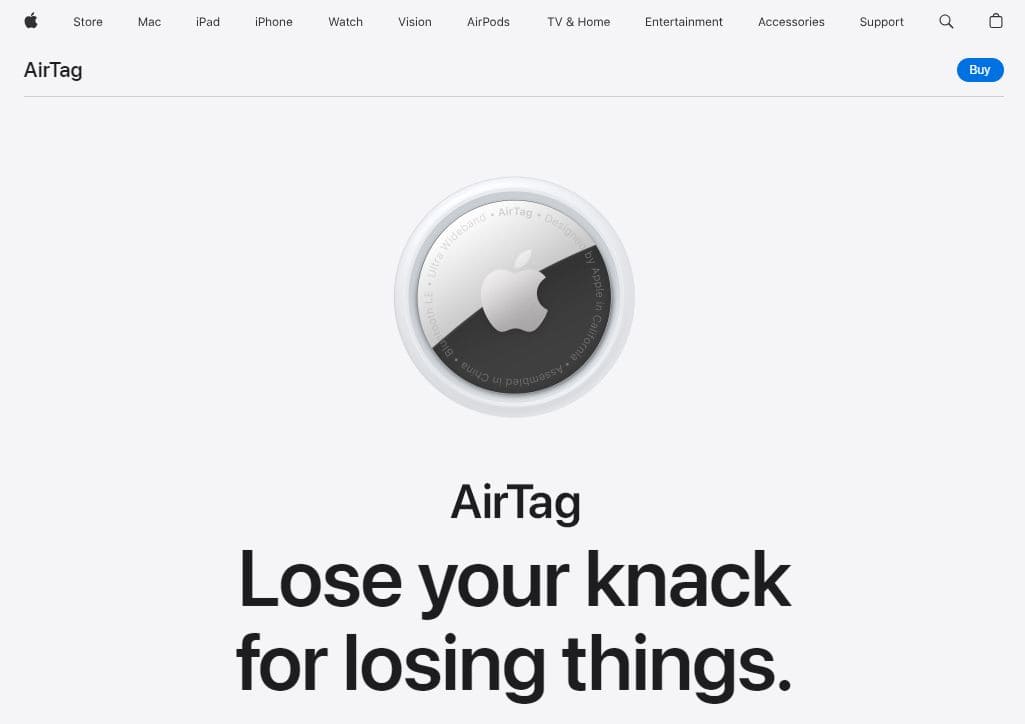
Price:
$29.
User Experience:
Apple Airtag uses Bluetooth to communicate with nearby Apple devices such as iPhones, iPads, and Macs. This feature allows them to provide accurate location information, since you can find them using the Find My app on an iPhone or iPad.
Some Reddit users say it has been handy for their elderly parents with Alzheimer’s and those who are declining fast.
After spending some time with Apple Airtag’s personal GPS tracking device, I liked that it was a nifty device that would go unnoticed on your neck. You can even slip it into your loved one’s bag or purse. Apple Airtag’s emitter could beep to help find the device nearby, like if my dad was around the home but was not responding to our calls.
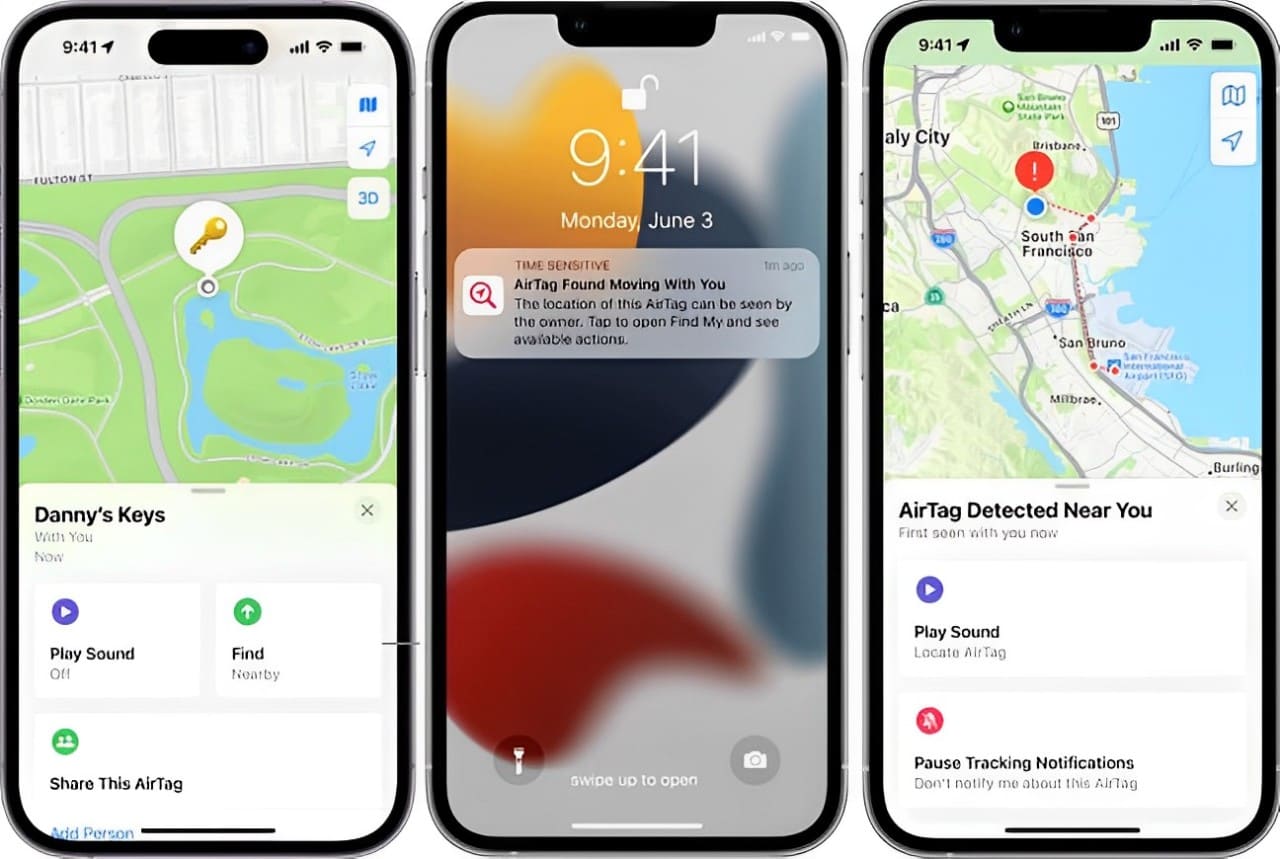
Apart from beeping, Apple Airtag could give me directions to its location when it was far away. If I switched to Lost Mode, everyone in my Find My network would get an alert to help with my dad’s search.
Nevertheless, I could not share the location with any search party, and it does not have geofence and SOS features. Thus, it may not be the best fit for a senior with balance and movement problems.
Pros:
- simple design for dementia patients who don’t like frills;
- no monthly subscription fees;
- uses multiple tracking technologies;
- you can attach it to their belongings if the pendant is too much.
Cons:
- only supports iPhone users;
- directions are not always straightforward.
mSpy – Best for Comprehensive Phone Monitoring
mSpy is a mobile monitoring app launched in 2010 by a London-based company. The app has since garnered thousands of Facebook followers and YouTube subscribers.
Best for preventing scammers.
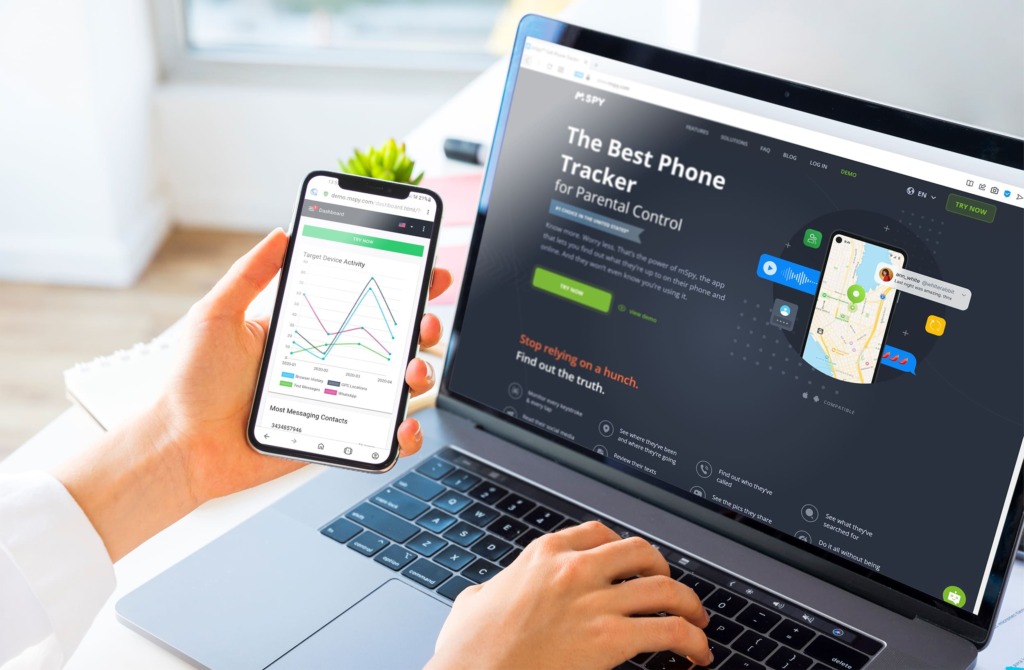
Price:
- $48.99/mo;
- $27.99/mo – Paid quarterly;
- $11.66/mo – Paid annually.
User Experience:
mSpy phone monitoring app can help track dementia patients. It monitors a phone’s activities, giving insights into whom a person interacts with. Thus, you can stay ahead of scammers who tend to take advantage of persons living with dementia.
Reddit users feel that the app is worth the money, while others say the app is precise and installation is easy, even for those not good with tech.
mSpy helped me see my elderly dad with dementia’s call logs, text messages, and live location on a map.
With mSpy, I could set up geofence zones, and it sent me email alerts when he left those zones. mSpy is discreet since it operates in the background and does not require wearing a GPS tracking device.
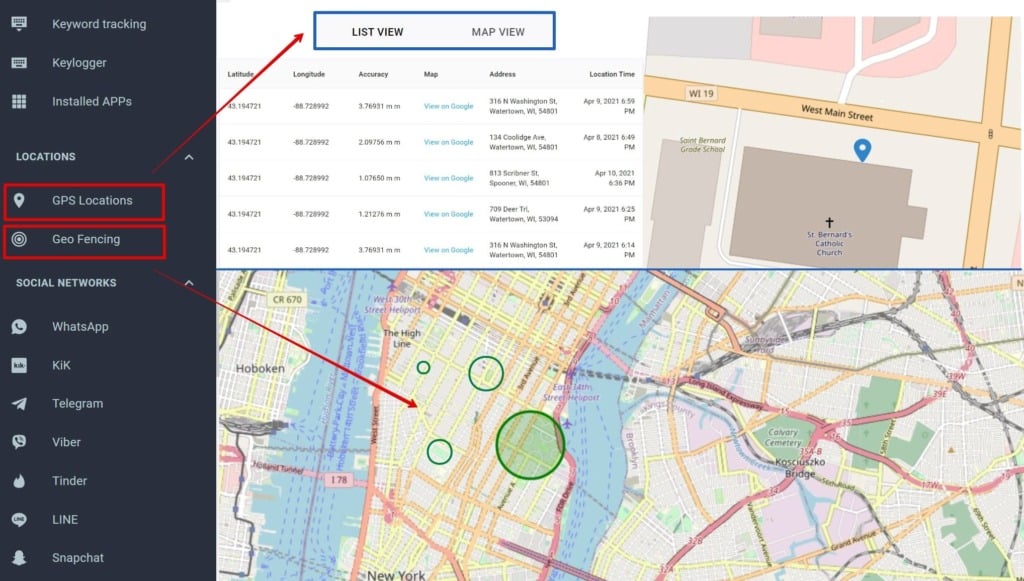
Pros:
- shows you all the incoming and outgoing calls;
- you can track keywords used by scammers;
- it shows all photos sent out from the device;
- great app for geofence;
- it alerts you about messages received from social media sites.
Cons:
- trial lasts only seven days;
- it can be tricky to install on an iPhone.
Jiobit – Best Clip-On GPS Tracker
Jiobit is a clip-on GPS tracker founded in 2015 and acquired by Life 360 in 2021. Life 360 is renowned for its family tracking app. The Jiobit device has 43K Facebook followers. The tracker uses patented tracking technology backed by industry experts and investors from Motorola, Google, Uber, Facebook, and Symantec.
Best for location monitoring.
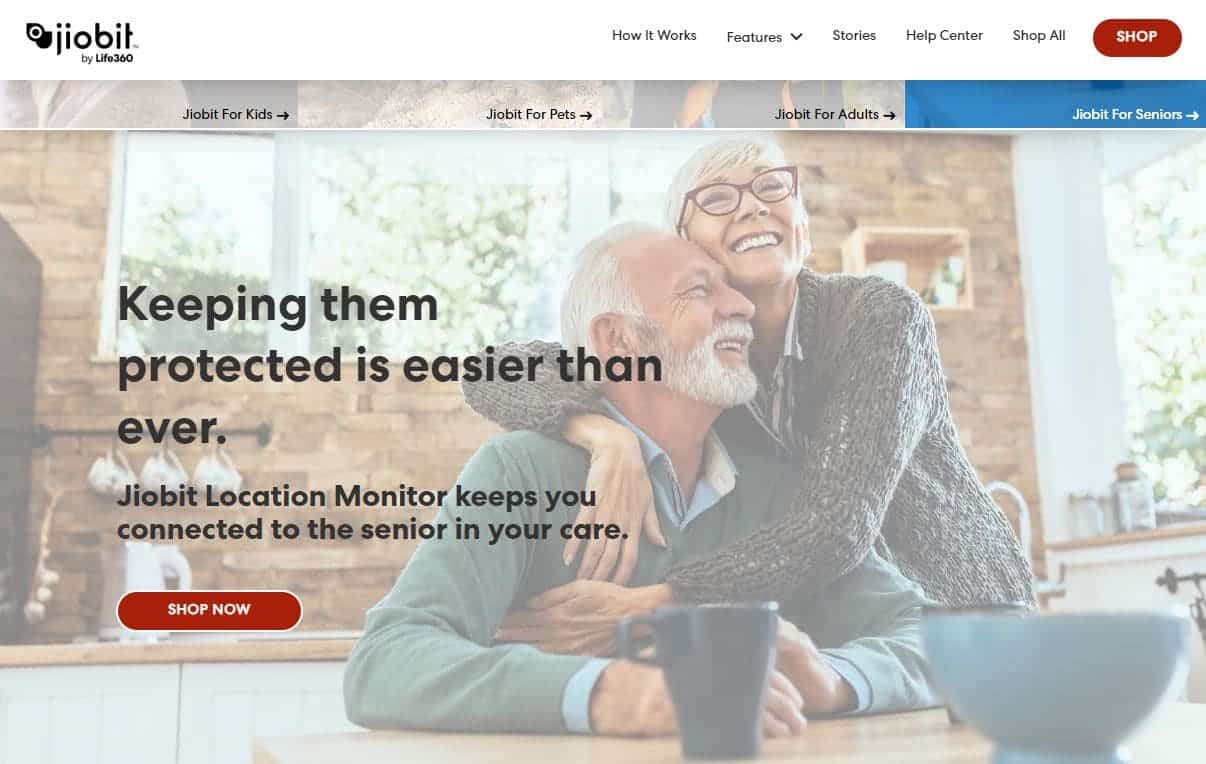
Price:
- $129.99 – unit;
- $14.99/mo;
- $12.99/mo – 6-month plan;
- $8.99 – 2-year plan.
User Experience:
Jiobit is one of the most popular GPS trackers for seniors. It is a small and lightweight device that you can wear with a lanyard or clip it on a bag or belt. The tracker has a 10-day battery life and is difficult to remove once locked.
Jiobit works with the Jiobit app, showing you the wearer’s location. The device uses GPS, cellular, Wi-Fi, and Bluetooth to connect automatically to the best signal. If you share the Jiobit app with a caregiver, you will also see that your loved one is with the carer.
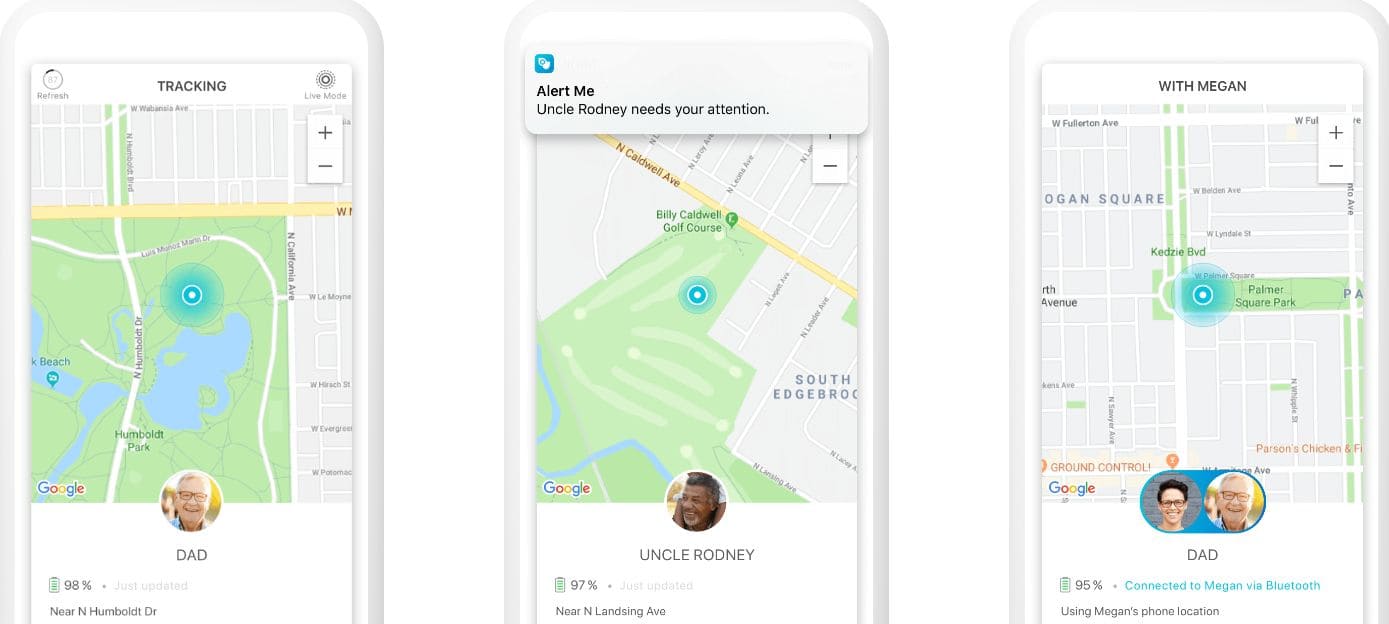
Based on my experience, Jiobit was a remarkable tracking device for adults with Alzheimer’s. It not only showed me the senior’s location on a map, but it also gave me directions to their location. In addition, I could set up geofence zones with trusted places. The app could send me alerts when my dad strayed too far.
Pros:
- allows you to set up trusted places;
- it has a visual representation of how far the person is from you;
- accurate live location due to multiple signal connections;
- it’s light and unnoticeable on the wearer.
Cons:
- battery life can be shorter if it keeps losing connection;
- regular device price is a bit high.
GPS Smart Sole – Best GPS Shoes
GTX Corp, now Meta Alert, developed the GPS Smart Sole to prevent wandering in people with dementia. It seeks to prevent removal since older adults with dementia experience paranoia, leading them to remove GPS devices such as wristbands and pendants.
Best for seniors who experience paranoia.
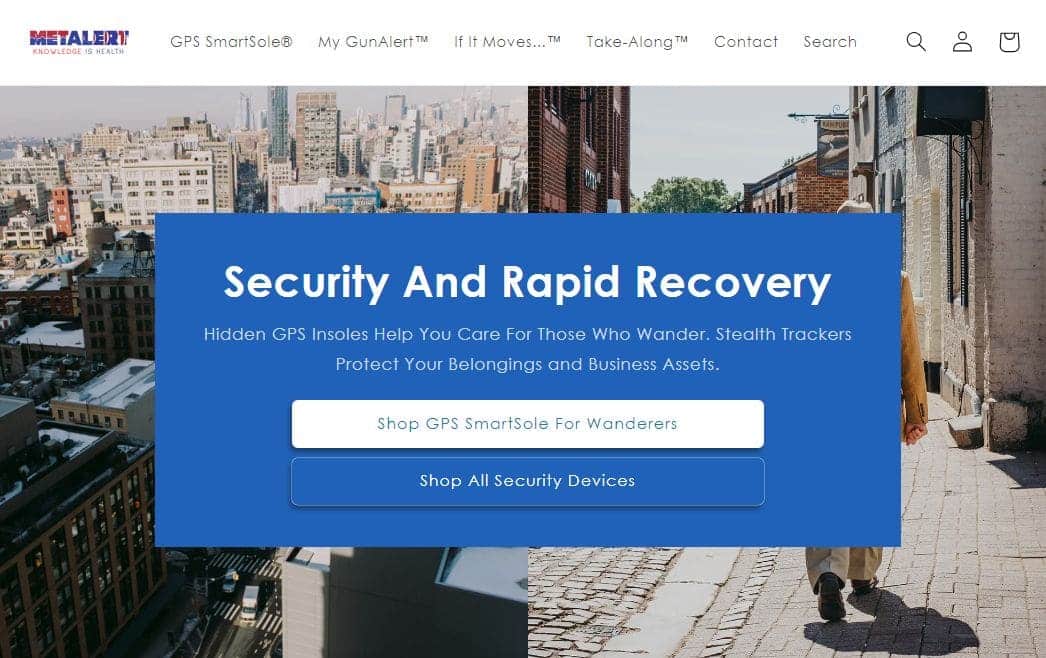
Price:
- $359 – insoles;
- $29.95/mo.
User Experience:
The GPS Smart Sole is an orthotic insole that fits into the wearer’s shoe. It has a two-way GPS tracking device that sends location and alerts using cellular networks. The Smart Sole also uses satellite technology to monitor the wearer’s location, which you can see on a smartphone app.
Reviewers on Reddit say it’s a cool device since the senior is not aware that they are wearing it, so it’s not easy to resist the device.
When I experimented with the Smart Sole, I found that it uses the ENO ONE eSim, which offers global coverage. It sent me text and email alerts to let me know when my dad had wandered off the geofence zones. The Smart Sole uploaded location data every five minutes, making tracking my loved one’s live location easy.
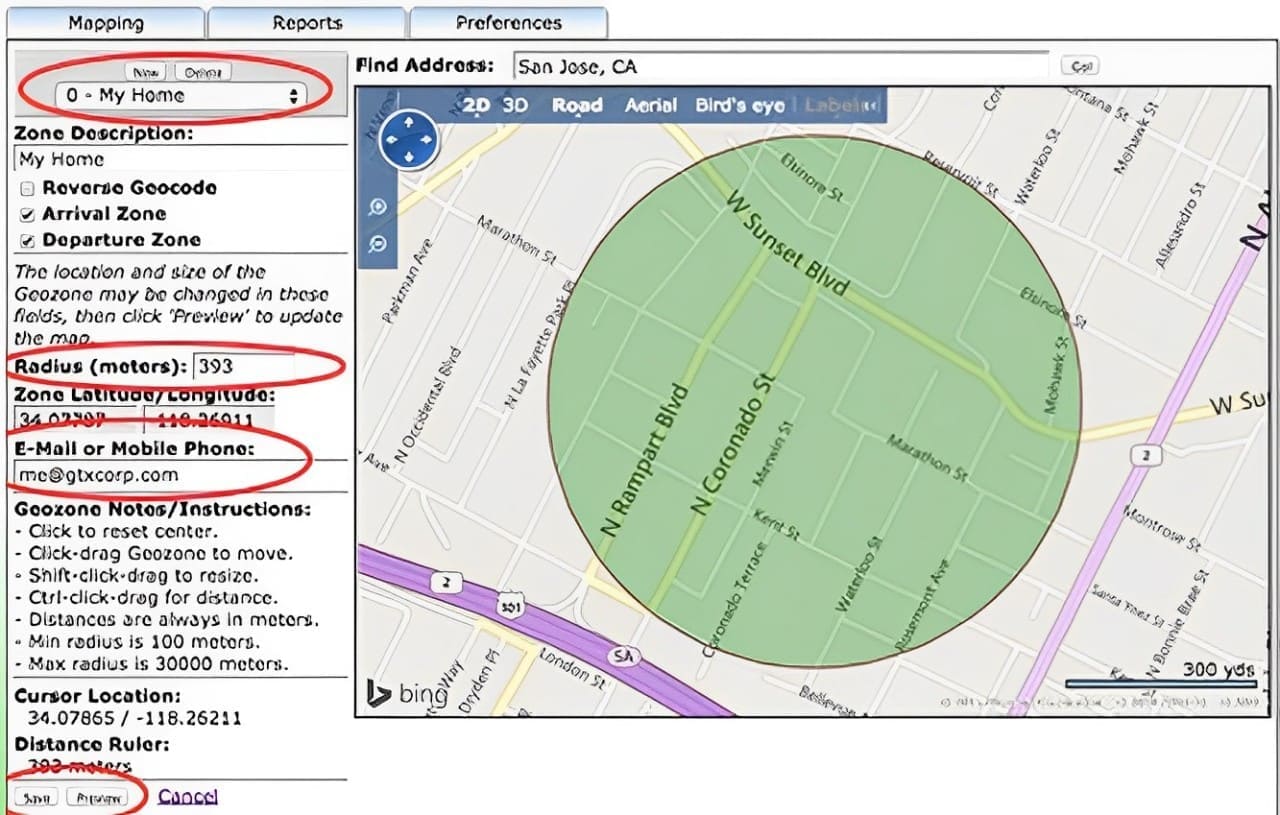
Pros:
- alerts caregivers when senior goes outside the safe zone;
- it’s disguised as an insole, making it hard to remove;
- you can trim them to fit the wearer;
- accurate and easy-to-understand readings.
Cons:
- the battery lasts for 2–4 days only;
- upfront costs are a bit high.
MGMini Lite – Best GPS Bracelet
MG Mini Lite is a GPS bracelet by Medical Guardian. It does not have extra watch faces, so it qualifies as a hassle-free GPS tracking device for the elderly with dementia. Medical Guardian offers medical alert devices with fall detection as one of the main features.
Best for fall detection.
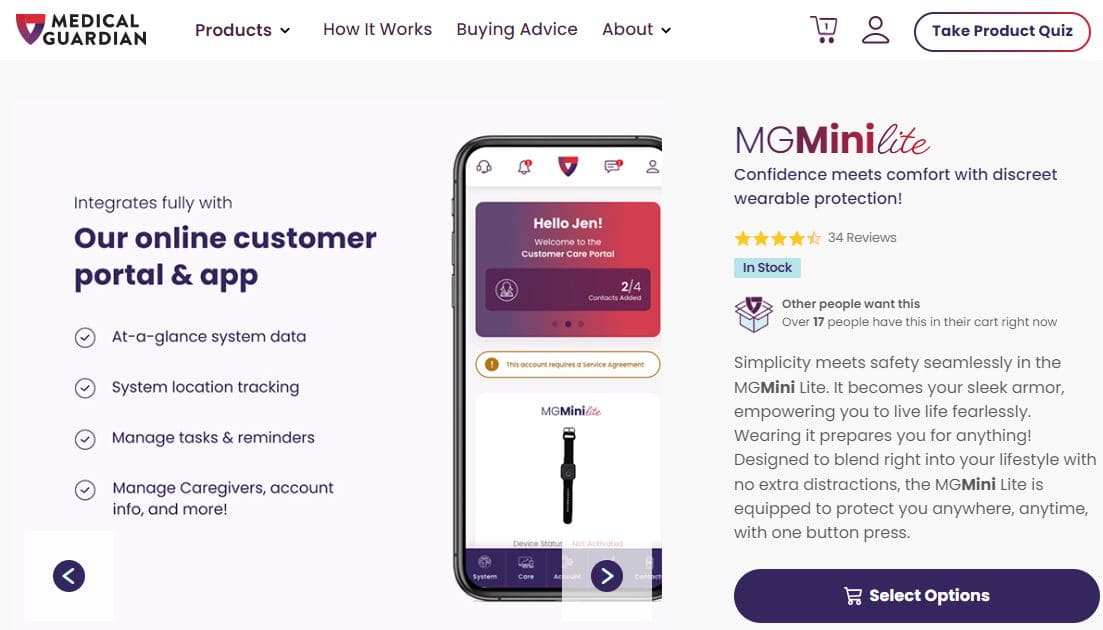
Price:
- $149.95 – unit;
- $44.95/mo – location tracking;
- $10/mo – fall detection.
User Experience:
MGMini Lite is a simple GPS tracker with a wristband. It offers real-time GPS tracking with unlimited 4G LTE coverage. The tracker has a single button and no clock face or touchscreen. It transmits the location data to its companion app or online portal.
Users like that the bracelet accurately detects falls, others recommend the MGMini Lite because it summons emergency responders.
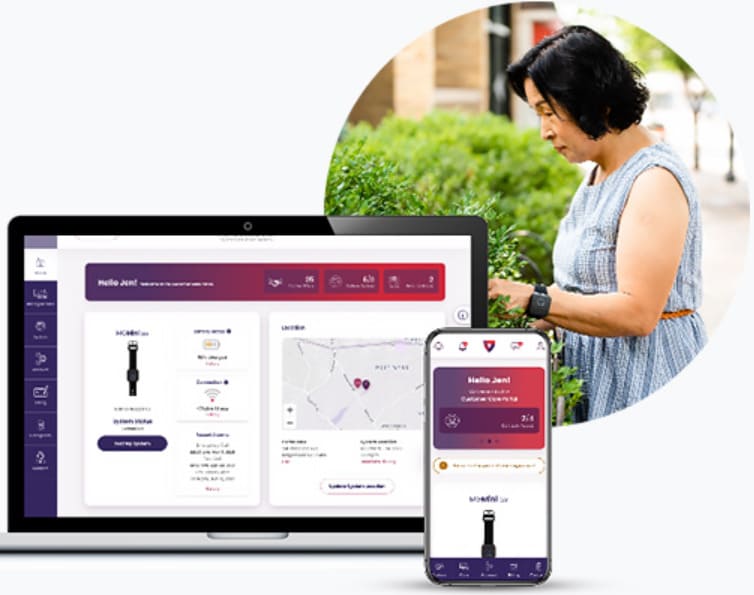
After testing it in practice, I found it light at around 0.7 ounces. The device runs on Verizon’s 4G network, ideal for home and on-the-go monitoring. I liked that my dad did not have to press the button if he fell. The fall detection feature automatically alerts the Medical Guardian monitoring center.
MGMini Lite has OnGuard alerts that my dad could send to my phone and his caregiver in real-time. I liked the simple design since it would not confuse my dad, who has cognitive impairment.
Pros:
- simple watch system ideal for dementia patients;
- accurate fall detection automatically alerts help;
- it can be used for home and mobile tracking;
- tracks the wearer’s activity on an app and online portal.
Cons:
- comes with additional costs for extra features;
- requires charging every day.
If you need to keep an eye on an elderly person now and then, use a phone number tracker. This allows you to send the person an SMS with a tracking link and find out their location as soon as they click on the link.
Enter the Phone Number And Track Location Now
- Number Tracking
- Phone Lookup
Conclusion
These GPS trackers for dementia patients are the industry’s top-rated options. AngelSense is the top wearable option with versatile wearing options. Apple Airtag is a simple device that tracks from near and far, while mSpy can prevent scammers from taking advantage of dementia patients. You can now pick a GPS tracker based on your needs from our top picks.
Frequently Asked Questions (FAQs)
Some devices like AngelSense are designed especially for dementia patients and people with special needs.
A method to track a person with dementia depends on the needs. If they tend to wander, you can get the AngelSense, while those who tend to lose balance can get the MGMini Lite with fall detection.
The best tracking device for seniors with dementia is the one that meets your needs. AngelSense will alert you when they wander, and Smart Sole is ideal if your loved one does not want to wear a tracking device.

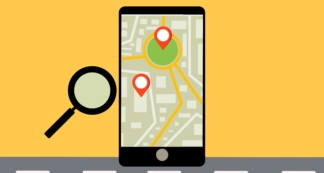
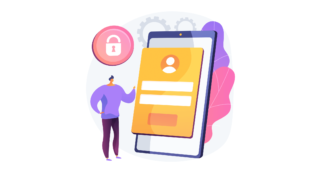
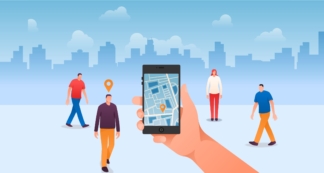
Leave a Comment